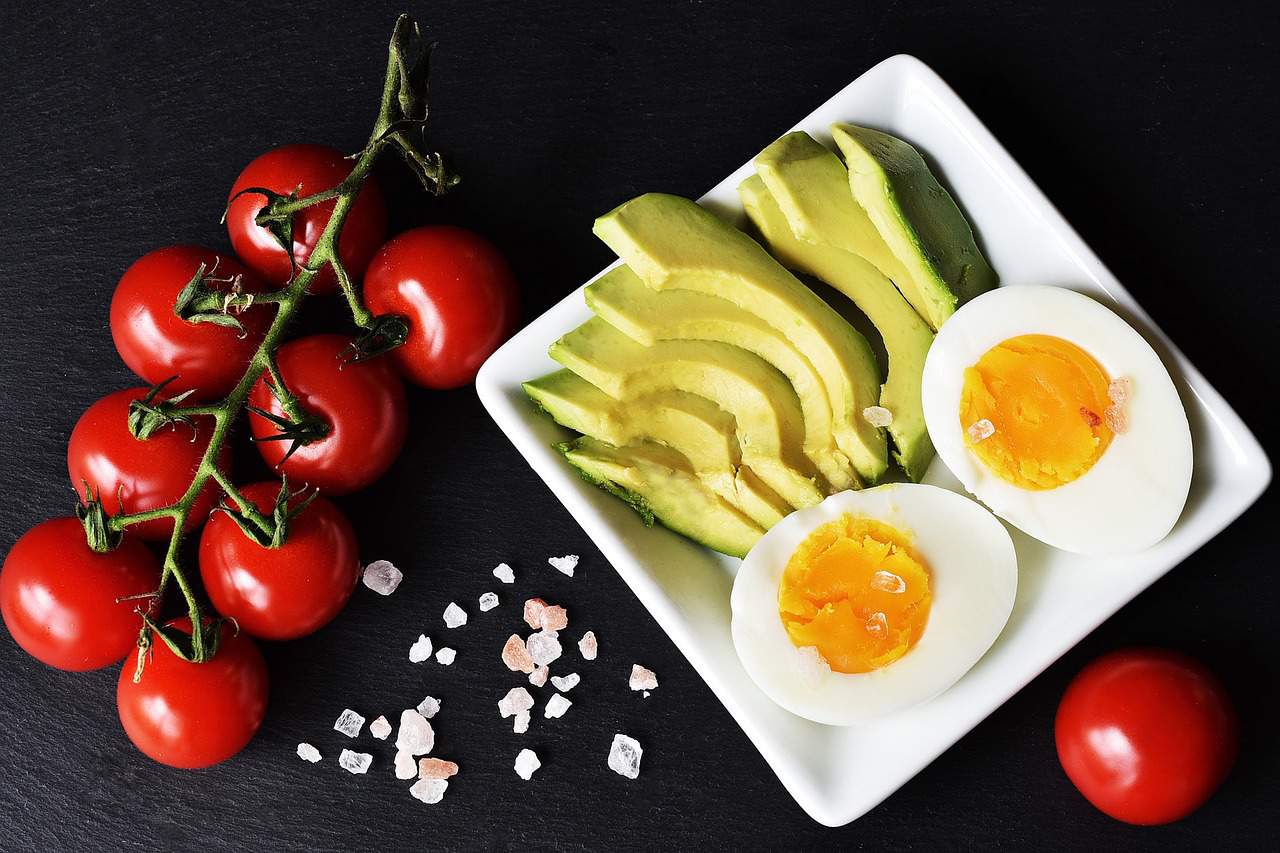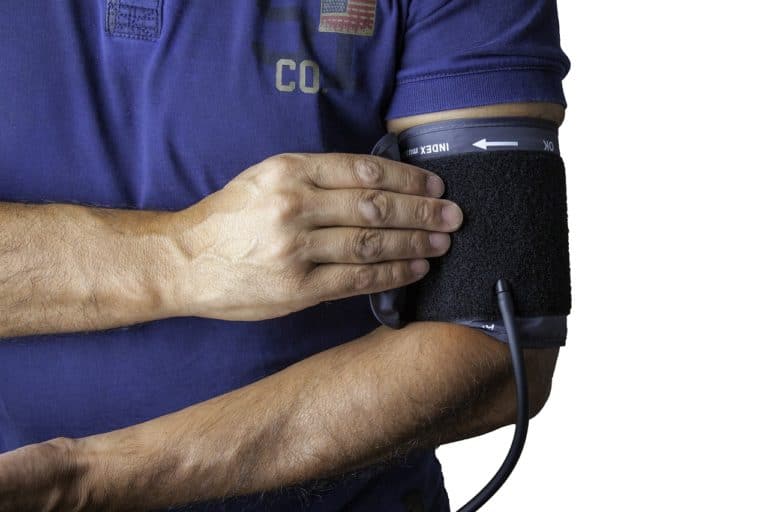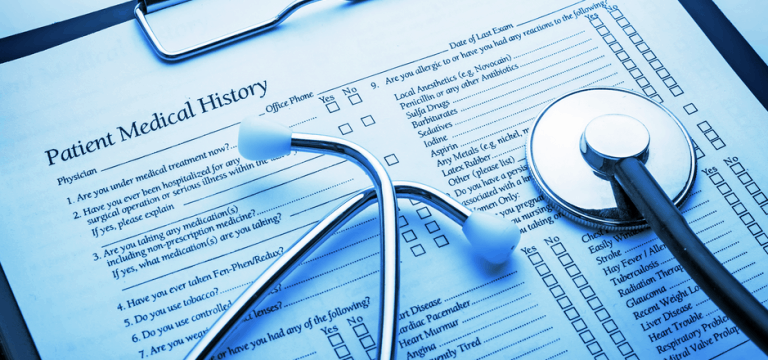You may have heard of the ketogenic diet (aka, keto diet), a controversial eating plan that has gained some recognition recently because some celebrities tout its merits and also because it is sometimes used to help individuals who have epilepsy and type 2 diabetes. Today, keto diets are promoted as being able to boost your energy, enhance mental and physical performance, and prevent disease, among other benefits.
Some people turn to the ketogenic diet to help them lose weight, even though the diet was never designed for that purpose. In fact, if you don’t follow the eating plan to the letter, weight gain is often the result.
What is the ketogenic diet?
The ketogenic diet is based on the idea that eating lots of fat, moderate amounts of protein, and very little carbohydrates is a healthy way to achieve low insulin levels which in turn cause low blood glucose levels. As a result, you should be triggering fat-burning genes while simultaneously reducing the accumulation of belly fat, which is a known risk factor for cardiovascular disease, metabolic syndrome, and type 2 diabetes, all of which are major health and life-threatening problems.
If you break it down to percentages, the keto diet consists of about 60 to 75 percent of calories from fat (or even higher), 15 to 30 percent of calories from protein, and 5 to 10 percent from carbs. Actual percentages vary, but the big issue is carbs. Traditional keto diets call for consuming less than 50 grams a day of carbs.
If you want to know what that looks like, here are a few examples:
- 1 cup of oatmeal (27 g) plus one medium apple (25 g) puts you over the limit.
- 1 cup of string beans (7 g) plus ½ cup of brown rice (22 g) and one orange (11 g) does not.
- 2 slices of whole wheat bread (about 24 g) plus 2 Tbs peanut butter (6 g) plus ½ of a medium banana (13 g) also falls below 50 g.
- One medium serving of French fries (48 g) just makes the grade.
Why eat so much fat? The premise of the keto diet is that when the body consumes a very high percentage of dietary fat, you don’t get enough glucose (from carbs) as fuel, and the reserve glucose (glycogen) in your liver goes away. The body wants to survive, so it switches its main fuel source from glucose to fat-derived ketones, which means you burn fat—dietary or body fat—for energy. This is a state known as ketosis.
What do you eat on a keto diet?
When three-quarters of your diet is fat, that’s a lot of fat – however, it’s critical to note that it should be high-quality fat and not pounds of factory-farmed beef (which contain lots of toxins), deep fried chocolate bars, and doughnuts. Examples of high-quality fats on the keto diet include:
- Grass-fed beef and wild game
- Free-range poultry
- Pasture-raised eggs
- Wild caught fish
- Raw seeds and nuts (in small amounts; see which nuts to avoid below)
- Coconut and avocado
- Extra virgin coconut and olive oils
- Full-fat dairy
In the carbohydrate department, the keto diet allows:
- Low-carb veggies such as leafy greens and the cruciferous varieties (e.g., broccoli, cauliflower, cabbage), bell peppers, cucumbers, asparagus, onions, tomatoes, mushrooms, and eggplant
- Low-glycemic fruits such as berries are acceptable in small amounts
- Non-gluten grains such as quinoa
Foods you are supposed to say goodbye to forever are:
- Packaged and processed foods
- Breads and pastas
- Most grains and cereals
- Low-fat foods
- Milk
- Legumes/beans/soy
- Nearly all fruits, including dried fruits
- Desserts and sugar
- High-carb vegetables (e.g., potatoes, corn, peas, yams, parsnips)
- Some nuts (e.g., cashews, chestnuts, pistachios, which are higher in carbs)
Pros of the ketogenic diet
Here are what some experts say are the pros of the ketogenic diet. Remember: the pros work only if you follow the diet carefully. Cheating can put you out of ketosis.
- You feel full and satisfied. Eating healthy fats and a moderate amount of protein keeps you feeling satiated and thus less likely to overeat. You still need to consider calories, however, if you are concerned about weight gain.
- Keto approved foods are anti-inflammatory.
- The diet can help heal your gut. This is true as long as you include plant foods (vegetables) in your daily menu.
- The diet may improve your energy level. Once you get past the transition from carb burning to fat burning (ketosis), many people say they have more energy. This is not true for everyone.
- You may lose weight. Some people lose weight on this diet, and that benefit can depend on how and what you were eating before going on this diet plan, your overall health, level of exercise, and other factors. Remember: some people gain weight on the keto diet.
Cons of the ketogenic diet
The keto diet is not for everyone, and some of the cons put that into perspective. For example:
- The food choices are limited. If you like lots of variety in your diet, keto is likely not for you.
- The amount of fat is too much for some people. In fact, some experts question whether humans are designed to digest and metabolize the amount of fat called for in this diet. It’s also true that some people feel ill and just cannot handle the high fat content.
- You can get the keto “flu.” This is a condition that occurs as you transition from burning carbs to burning fats. The severity of the symptoms can vary from person to person and include sugar cravings, dizziness, brain fog, nausea, sleep difficulties, irritability, stomach distress, and fatigue. The flu can last from 3 to 5 days or several weeks.
- It can be challenging socially. The keto diet requirements may present a challenge in social occasions, during vacations, at some restaurants, and other circumstances.
- It may hinder long-term weight loss. As with many diets, you may experience some weight loss in the beginning, but because of the high caloric content of many of the foods on the keto diet, you may eventually gain weight.
Is the keto diet good for prostate health?
At first glance, the keto diet may not seem like it’s a good eating plan to follow if you want to prevent prostate cancer or if you already have the disease and want to choose a healthy eating program. After all, eating all of that fat isn’t good for prostate health, right?
That’s true. In fact, research has demonstrated that red meat, processed meat, dairy foods, and trans fats contribute to cancer. In 2015, for example, the World Health Organization issued a report noting that meat causes cancer. More specifically, processed red meat was classified as “causes cancer” while non-processed red meat was named as “probably causes cancer.”
However, the keto diet strictly states that the animal foods must be high-quality; that is, grass-fed beef and wild game, wild caught fish, free-range chicken and other poultry, and pasture-raised eggs. The keto diet does include full-fat dairy, and it’s true studies have named dairy foods as raising the risk of prostate cancer. The caution here, however, is to include moderate amounts of full-fat dairy and that it should be organic; that is, without added hormones or other contaminants. In addition, the dairy food you should avoid completely is milk.
Now let’s look at how a keto diet may help with prostate health. Research has shown that mice with prostate cancer who were fed a no-carbohydrate diet had slower tumor growth and better survival than their peers who ate a Western diet. According to one of the most recent reviews (2017) of this topic, a team evaluated 13 studies of use of the keto diet on tumor growth and survival times for more than half a dozen different tumor types, including prostate cancer. They noted that the diet “can potentially inhibit the malignant cell growth and increase the survival time,” but that because animals and humans differ physically, studies in humans with cancer are necessary. In fact, a clinical trial is currently underway (slated for May 2021 completion) that is exploring the impact of a ketogenic diet on overweight men with prostate cancer who are following active surveillance.
In the meantime, some experts claim a keto diet is critical for fighting cancer because it asks individuals to eliminate all vegetable carbs except non-starchy ones and replace them with healthy fats and high-quality protein. The reason? Carbs transform into sugar (glucose) in the body, so when you remove carbs that convert into glucose, you lower the glucose level in your blood and essentially starve cancer cells. At the same time, low protein intake reduces a specific process that speeds up cell proliferation and thus lessens the spread of cancer cells.
The fact that the keto diet lowers blood glucose levels makes it a good option for those who need help managing type 2 diabetes. If you have type 2 diabetes, be sure to discuss the keto diet with your healthcare provider before you start this eating program so the two of you can adjust any diabetic medication you are taking to coincide with how your body responds to the diet.
The keto diet also emphasizes the elimination of processed and refined foods, which includes foods with added sugars, trans fats, and food additives—all of which can have a role in the development of cancer.
Is the keto diet for you?
In addition to the pros and cons already discussed, it’s important to point out that the keto diet is basically an anti-inflammatory way of eating. Since chronic inflammation is a huge health concern and implicated in everything from heart disease to type 2 diabetes, Alzheimer’s, arthritis, obesity, some cancers, inflammatory bowel disease, and more, finding a diet that can help stem inflammation is highly desirable. Also, because a keto diet helps balance blood sugar–and sugar is a driving force behind many cancers–choosing this way of eating can help manage two major health challenges simultaneously.
Ultimately, you must make the decision as to whether the keto diet is for you. Listen to your body. Consider your energy level, mood, cognitive abilities, impact on other health issues, and effect on weight. Ask yourself:
- What is it that I want from this diet? What are my short- and long-term goals?
- Is this a diet plan I believe I can follow for months? Years?
- Can my body handle the amount of fat in this diet? (Note that it takes time for the digestive system to adjust to high fat, often accompanied by bloating, stomach cramps, gas, and diarrhea.)
- Am I prepared to give up many of the foods I have always enjoyed?
On a final note: Some people who hate vegetables believe they don’t need them and that a keto diet is the perfect excuse to avoid them. However, even though the keto diet is very high in fat, vegetables are still part of the plan and should be included or else you can experience an imbalance in your gut microflora. The keto diet also is not an excuse to eat pounds of bacon and eggs, steaks dripping in fat, lots of fried foods, and junk food.
The ketogenic diet is not for faint of heart. It requires dedication, consistency, planning, and patience in order to do it correctly. If you do decide to give it a try, it may be best to consult a healthcare provider who is familiar with the dietary plan.
Want to know more? Here’s a 30 day comprehensive guide to living on the keto diet.
Reference
Masko EM et al. Low-carbohydrate diets and prostate cancer: how low is “low enough”? Cancer Preview Research (Philadelphia) 2010 Sep; 3(9): 1124-31. What is the Keto Diet and is it Healthy?








